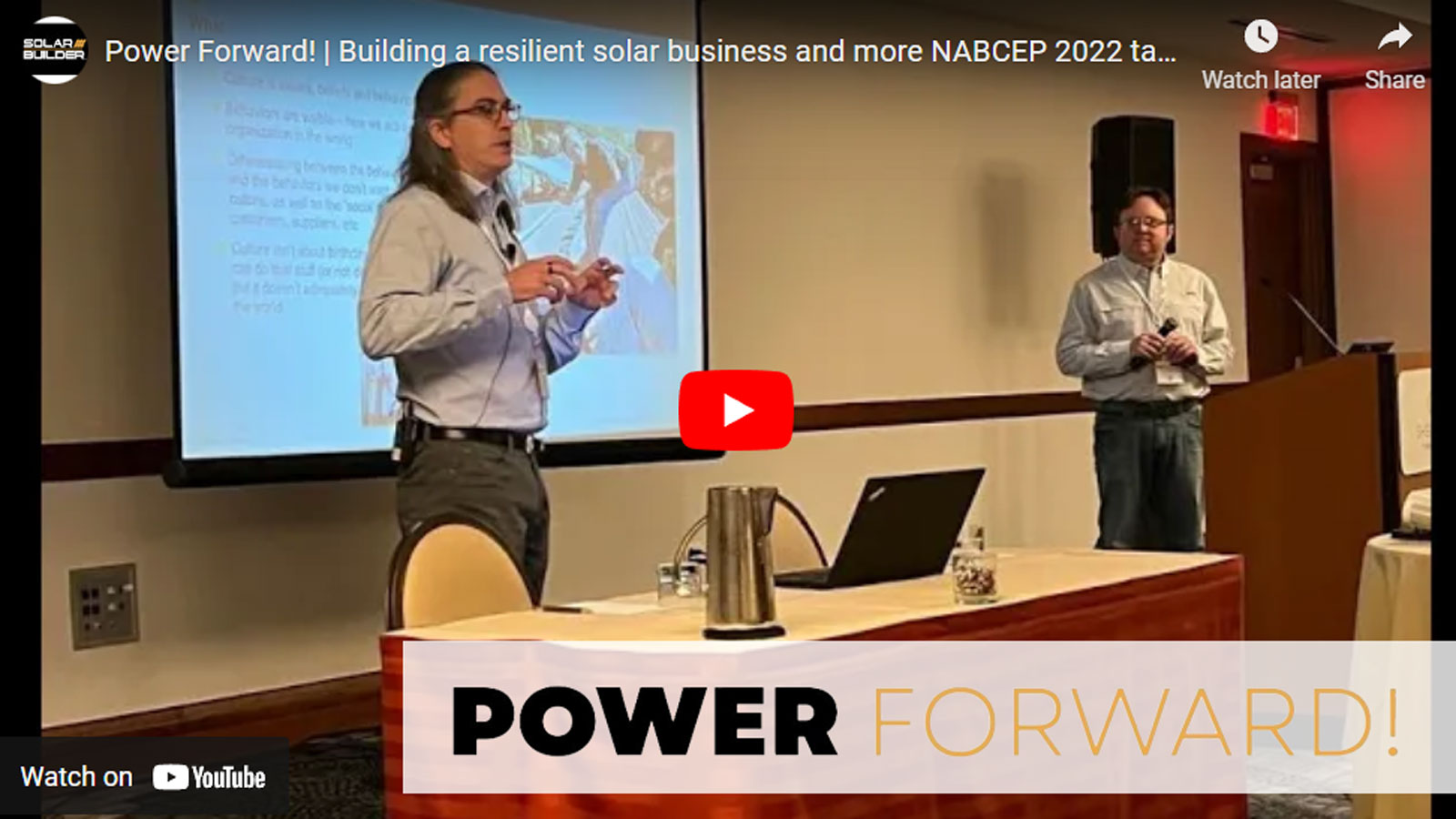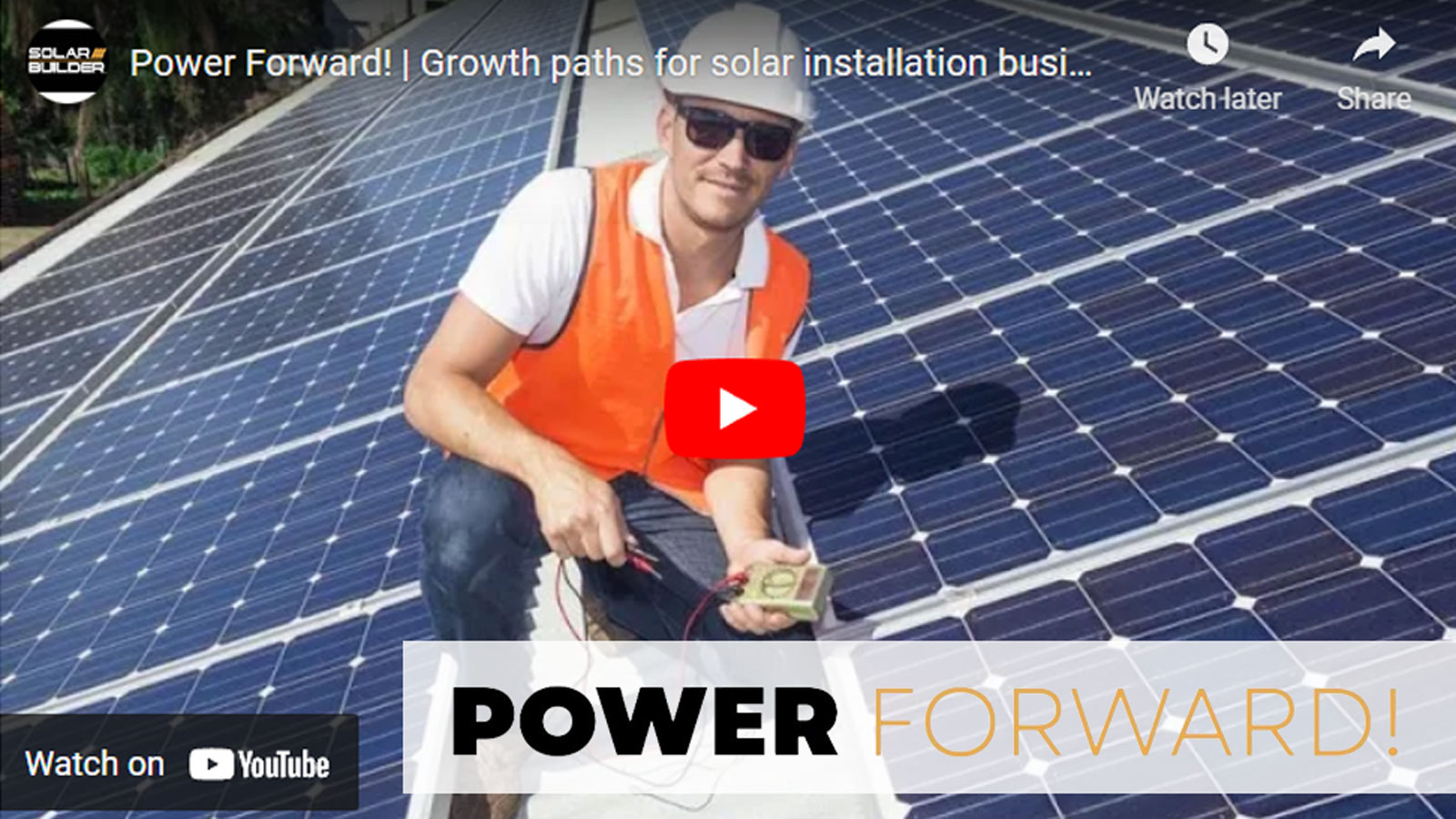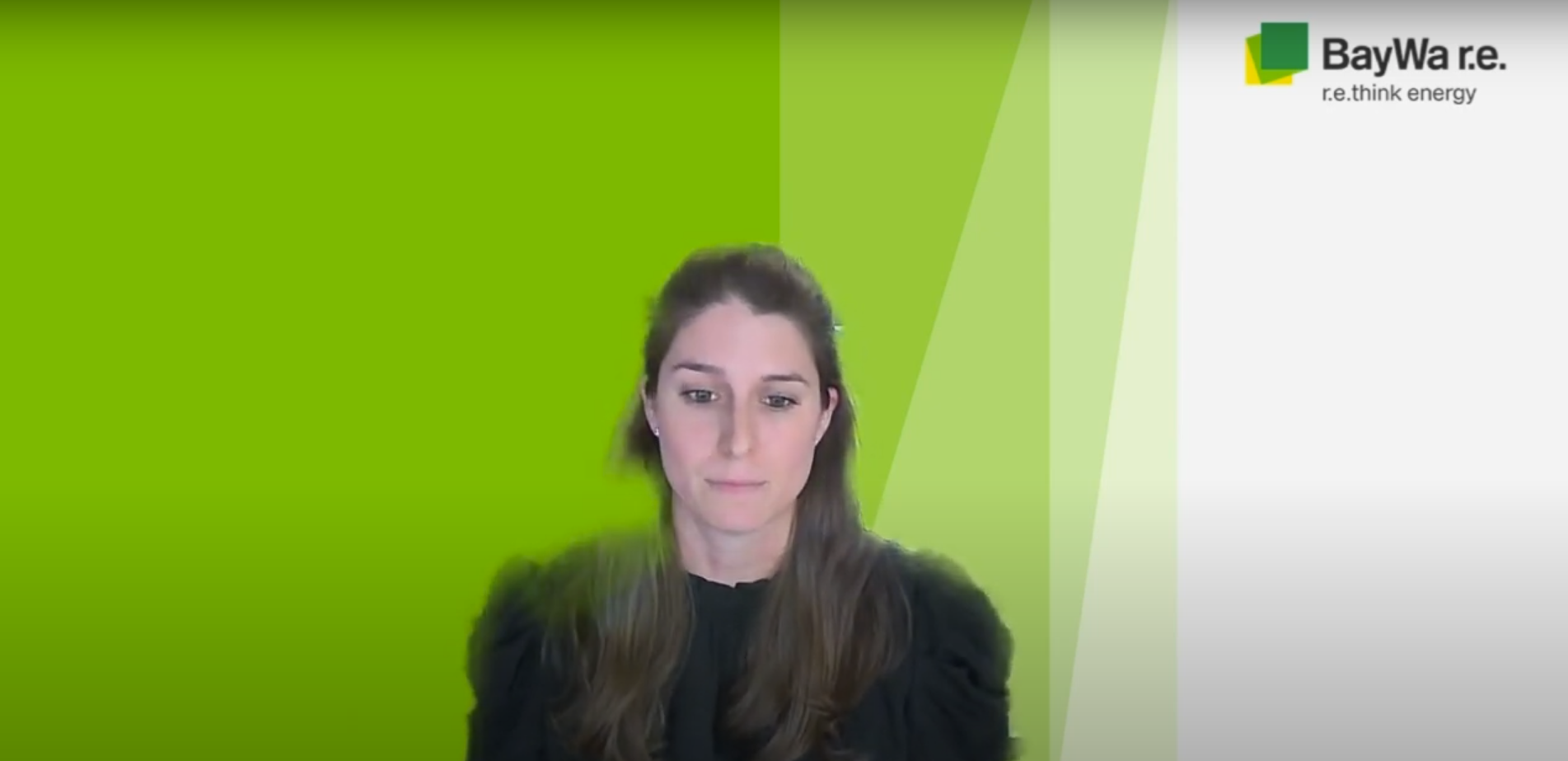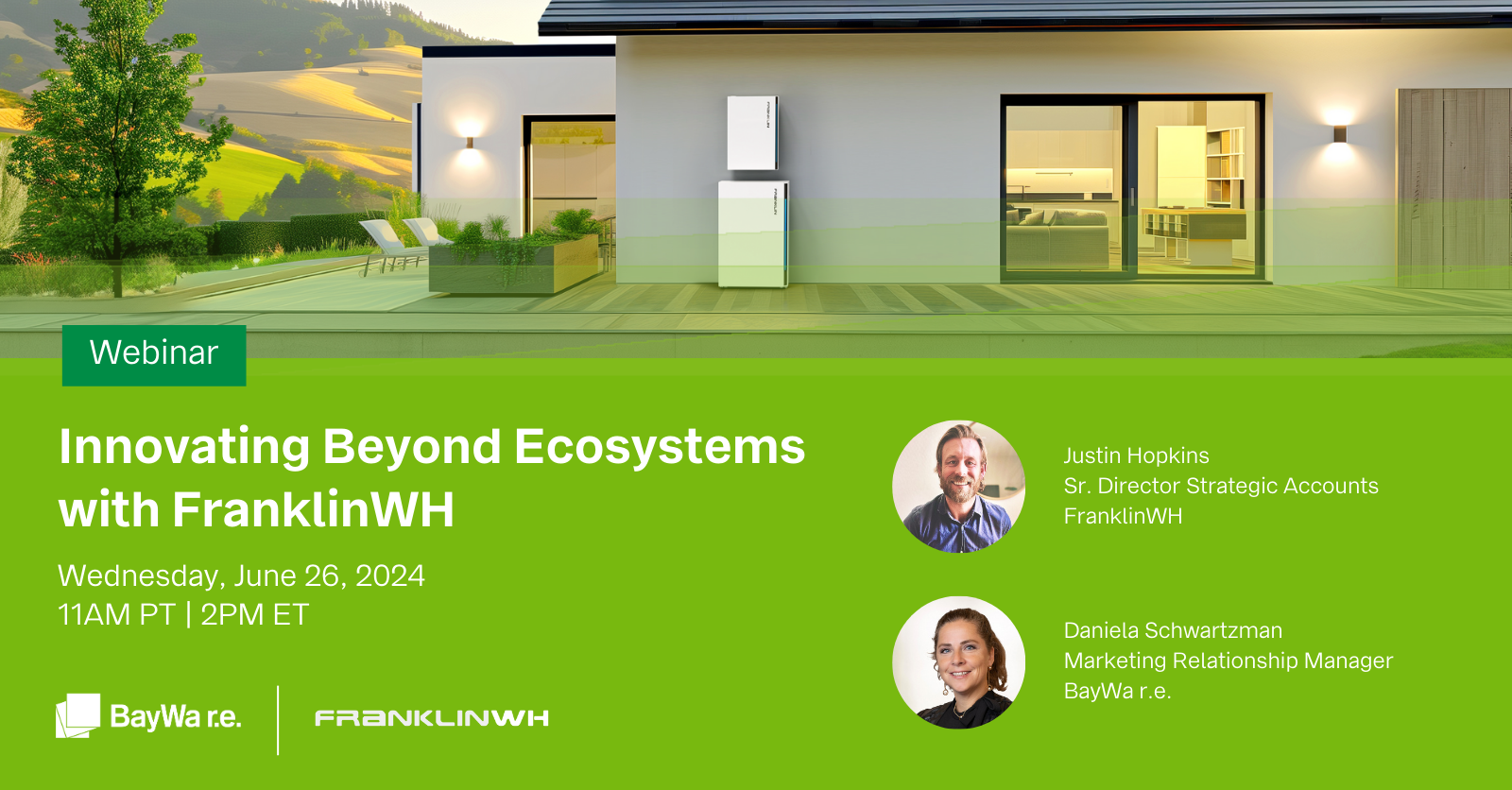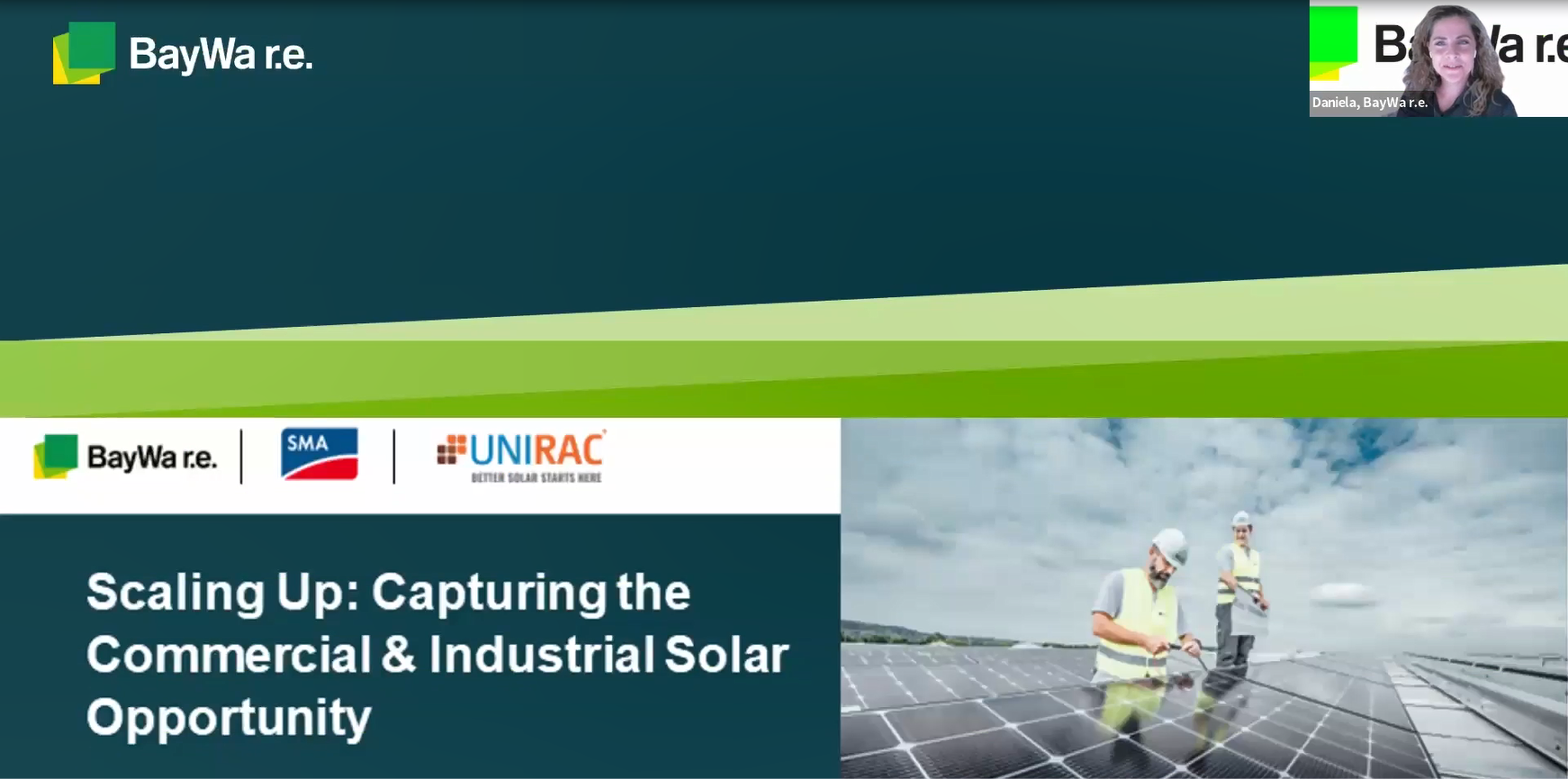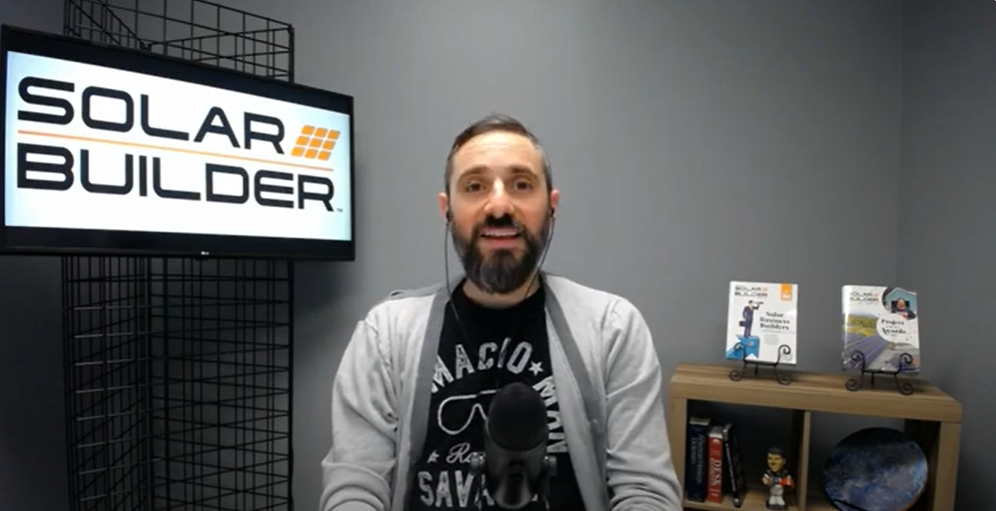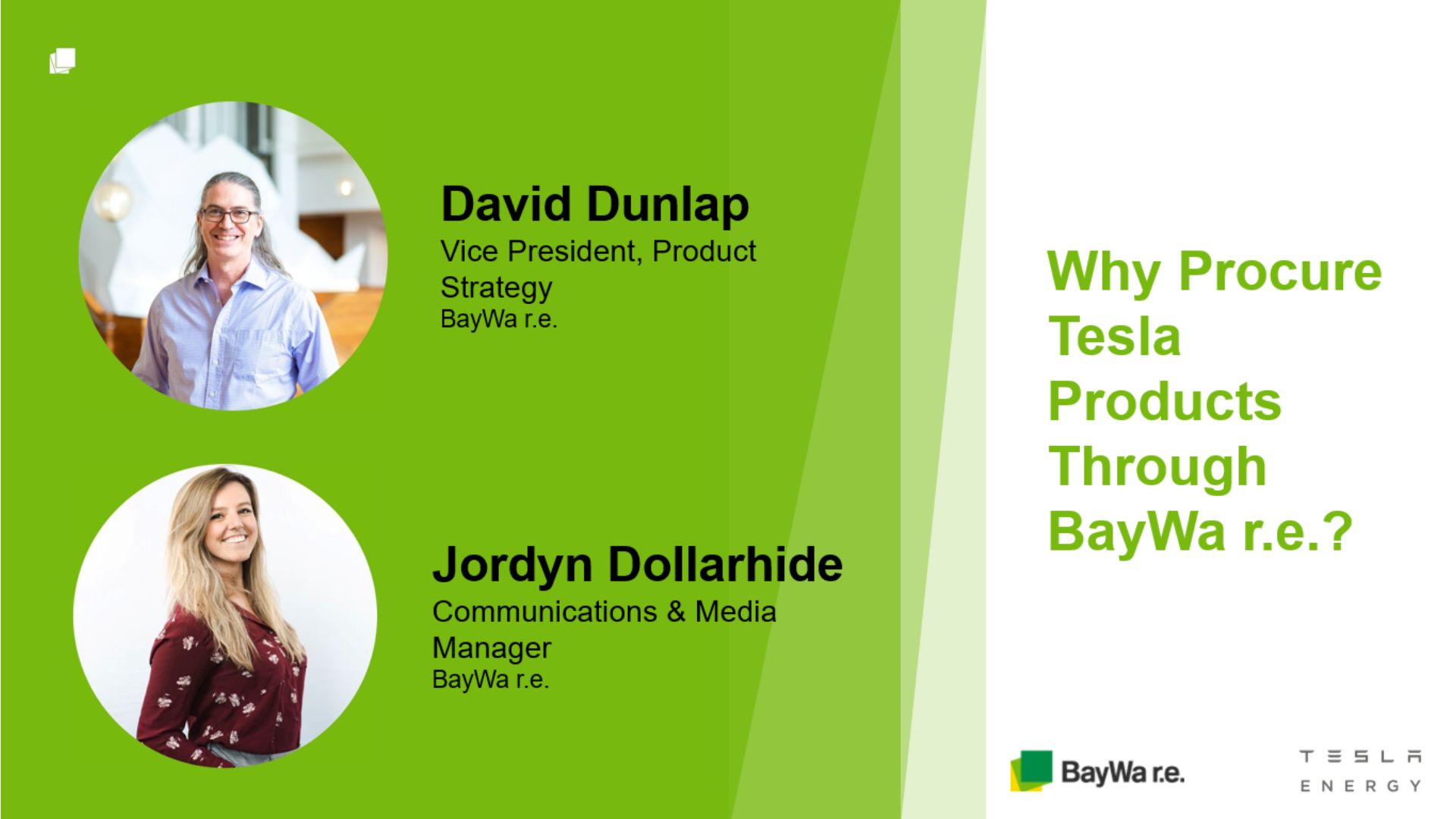This article is republished courtesy of Solar Builder Magazine.
On this episode of Power Forward, we get a crash course in solar installer financial health. What are “healthy” installers doing that struggling installers are not doing? And if you’re not struggling now, how can you best protect against the market’s volatility? Rachel Schapira, the Director of Residential Finance at BayWa r.e. Solar Systems gives us some in-depth insight.
Be sure to watch the full 20 min episode for yourself.

Here’s part of the transcript:
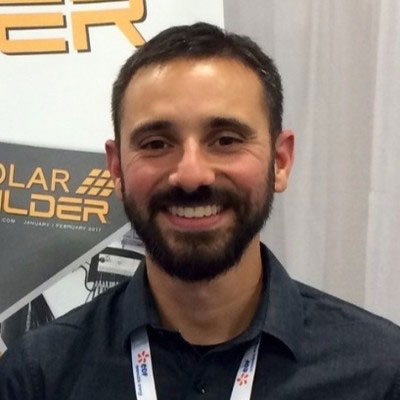
Chris Crowell from Solar Builder Magazine
Let’s dig into some of the things that solar installers can control. What are the leading indicators of installer financial health? And what defines healthy in this way?
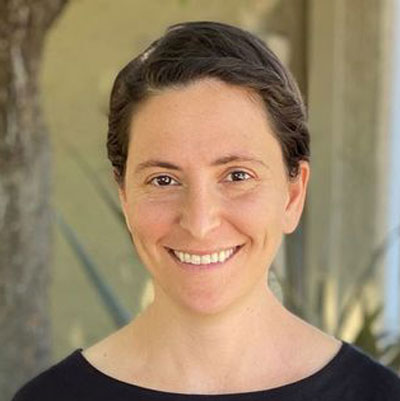
Rachel Schapira from BayWa r.e.
Leading indicators are:
- Is the installer undergoing a period of controlled growth rather than unfettered growth where their sales are far outstripping their ability to complete the installations?
- Is quality the focus of the work both in terms of craftsmanship on the roof but also in terms of systems internally?
- Are they using data to inform the decisions they make?
- Do they have good project durations?
- And are they adjusting their redlines as prices are shifting?
A healthy installer also has systems and processes developed as they’re growing. They’re not just growing and then realizing uh oh we grew past our systems. They’re continually investing in their systems and processes so that the systems can scale as they grow because what happens to a lot of installers is they’re so focused on doing quality craftsmanship, which is always worth doing, and they’re focused on sales, that they’re not investing in the systems that allow them to track the KPIs to make sure that they’re hiring for the skills that they’re going to need in three years to manage their liquidity.

So what are healthy solar installers doing differently than those that are struggling? You touched on it a little bit there, but are there some more examples you can throw out?

The first thing is they’re saying no to some opportunities.
They’re being selective about how they grow so that they can be intentional and strategic in how they grow, because not all growth is profitable. It’s not worth investing in growth that’s not going to be profitable.
You need to do a proper analysis and make strategic decisions based on actual data projections forecasts that help you inform:
- Do I want to enter a new vertical?
- Do I want to start expanding into non-solar services?
- Do I want to shut down a sales team when my number of closed sales is far outstripping my install capacity?
The other thing that they do is they’re really focusing on operational excellence.
A lot of the best installers actually invest in systems to the point where they hire a person to manage it and help them with data analytics because, again, they’re focused on the long game. They’re focused on scalability, and they’re focused on growth.
The next thing that healthy installers do that unhealthy installers tend to invest in less is organizational resilience.
- Are your people focusing their times on your growth goals or are they getting caught in non-productive work?
- Do you have systems that allow you to plan your cash requirements so that you can have the money you need to hit your growth targets and your goals.
And do you have some cash reserves on hand to make sure that you can survive a downturn?
The best installers really excel at setting customer expectations and talking about homeowner expectations. Their sales teams are well trained and focused on consultative sales and educating the homeowner so they come in knowing what to expect.
The last thing, and this is really critical, is they’re adjusting the redlines as prices increase.
What that meant was they were losing the margin that they needed to be able to absorb costs like change orders when they couldn’t get exactly the product they needed as we got into the supply constraints. You need to make sure that you’re in a position where you can adjust your redlines in a timely manner to make sure that you continue to have you know some wiggle room to cover change orders if necessary or to just make sure that all your sales and installs are profitable.
Installers do have the opportunity to sell their value and their quality in order to justify a slight price difference if they’re competing against someone who hasn’t adjusted their redlines. They also can sell themselves as, ‘we’re going to be financially healthy; we’re here for the long haul. I know that we are a couple cents higher and we’re going to be here to honor our warranty to you as a result.
Next, we get into:
- Accrual accounting vs. cash accounting
- Renegotiating third-party sales agreements
- And why it is important to renegotiate them
- And what financially healthy installers need to be doing right now — like checking out BayWa r.e.’s Split Pay option, which Shapira says is “specifically designed to make sure that you can get the equipment you need when you need it.”
- “We [BayWa r.e.] partner with some solar financiers to be able to secure the equipment we ship you against loans that you have from the financiers. That way we can send you more materials than our credit line normally allows, and you get the materials when you need without having to prepay other bills if your credit line doesn’t give you enough room to get all the equipment you need in a given month.”
Pick up this part of the conversation below.
Watch more PowerForward! Episodes
Building a Resilient Solar Business: Key Takeaways from NABCEP 2022 CE Conference
BayWa r.e.’s Vp of Operations, David Dunlap, and VP of Sales, Keith Ostwald share insights from the conference in this episode of PowerForward!, a partnership of BayWa r.e. and Solar Builder
Solar r.e.view Podcast and Solar Builder Join Forces to Power Forward!
Code changes, COVID, supply chain – there’s always something impacting a solar installation business. With our Power Forward! series, a collaboration with Solar Builder Magazine, we help solar contractors and EPCs understand the solar industry’s pressing issues, explore budding market trends and, well, power forward (!) to what comes next.
BayWa r.e. Solar Systems LLC supplies residential and commercial solar installers in the United States with quality solar + storage components, forecasting, business planning advice, and a community of experts. Visit www.solar-distribution.com to read our industry insights articles and stream our Solar Tech Talk and Solar Town Hall podcasts on YouTube and Spotify. Follow us on LinkedIn, Twitter, and Facebook to stay connected. Ask us about our Split Pay financing program and use our industry-leading Webstore to save time, get gear shipped, and get jobs done! Part of the BayWa r.e. Global family of renewable energy companies.
